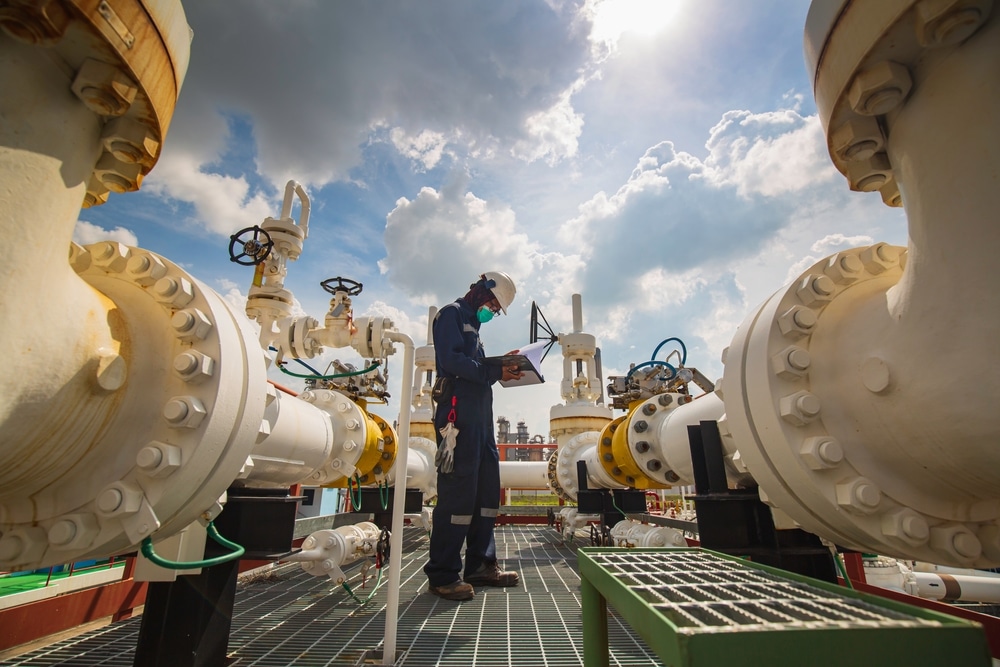Germany's recent decision to significantly reduce its gas imports by 32.6% in 2023 has marked a notable shift in its energy strategy, particularly when it comes to German gas. This move, influenced by geopolitical tensions and strategic planning, demonstrates the country's resilience in addressing energy challenges, including the current gas crisis in Germany. Germany's experience in gas trading offers insight into the adaptability of a global energy leader.
Panorama of gas imports in Germany: a transformation revealed
The Bundesnetzagentur agency reported a major change in Germany's approach to gas supply. In reaction to the aftermath of the Ukraine conflict, Germany shifted from relying heavily on Russian pipeline gas to using floating terminals for liquefied natural gas (LNG) imports from the global market. In 2023, Germany imported 968 terawatt hours (TWh) of natural gas, with a significant proportion coming from Norway (43%), the Netherlands (26%) and Belgium (22%).
Cross-border impacts: Germany's gas exports slow
Germany, traditionally a key route for Russian gas to its European neighbors, saw its gas exports fall by 63% in 2023. The 187 TWh exported, mainly to the Czech Republic, Austria and the Netherlands, contrasts sharply with the 499 TWh from the previous year. This decline reflects changing energy dynamics caused by reduced Russian imports and highlights changes in international energy interdependence.

Navigating the challenges: Germany's response to the gas crisis
Faced with the volatility of the energy market, Germany adopted a comprehensive approach to mitigate the impact of the gas crisis. National energy conservation efforts and mild climate contributed to a 5% reduction in gas consumption, totaling 810 TWh in 2023. Industries achieved significant savings through process optimization, while savings from Households were more modest, largely due to fixed patterns of hot water and cooking gas consumption. .
Storage resilience: a beacon of stability
Despite these challenges, Germany's gas supply remains stable, with storage caverns at 91% capacity. The regulator's statement: “The storage caverns are currently 91% full. This is a very good basis for the remaining winter months,” highlights effective strategic planning. This strong storage position acts as a buffer against potential disruptions, reinforcing confidence in Germany's ability to manage energy challenges.
Germany's transition in gas trade is an example of adaptability and resilience amid geopolitical challenges. The shift from a heavy dependence on Russian gas to a more diversified global supply strategy has improved its energy security and influenced the dynamics of the international energy market. As the global energy landscape evolves, Germany stands as a symbol of stability and foresight, demonstrating the importance of strategic adaptation in gas trade. The story of Germany's gas sector, with its various challenges and adaptations, presents a compelling example of a nation navigating the complex waters of global energy dynamics.
!function(f,b,e,v,n,t,s){if(f.fbq)return;n=f.fbq=function(){n.callMethod?n.callMethod.apply(n,arguments):n.queue.push(arguments)};if(!f._fbq)f._fbq=n;n.push=n;n.loaded=!0;n.version=’2.0′;n.queue=();t=b.createElement(e);t.async=!0;t.src=v;s=b.getElementsByTagName(e)(0);s.parentNode.insertBefore(t,s)}(window,document,’script’,’https://connect.facebook.net/en_US/fbevents.js’);fbq(‘init’,’504526293689977′);fbq(‘track’,’PageView’)






